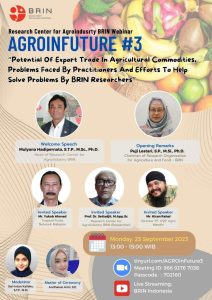The drivers in the tropical fruit trade include growing market demand with consumer preferences for exotic, nutritious and tasty fruits that contribute to a healthy diet. This is evident from the expanding middle class in urban populations and the Asian diaspora. Augmenting these are the involvement of big companies and multinationals involved in production and trade. The recent developments in tropical fruit production indicate that there has been expansion in production areas for both the major (mango, pineapple, banana, avocado and papaya) and minor fruits such as durian, dragonfruit, passionfruit, jackfruit, guava and rambutan. This also relates to the increased production areas for both fruit categories. These developments are spurred by the increasing demand, utilization of e-commerce platforms, better logistics and communication facilities. Besides this, there are also attempts to grow tropical fruits efficiently with suitable cultivars in other agro-climatic environments to reduce imports and strive towards self-sufficiency.
Notwithstanding, expansion of the tropical fruit industry has its share of challenges such as the impact of climate change, which is also related to increased pests and diseases incidences, postharvest losses, lack of infrastructural development, increasing cost of production, freight availability and charges, market access and inclusivity of smallholders into the value chain.
Some of these challengers are mitigatable with opportunities such as the growing demand for tropical fruits both for domestic and export markets, free trade agreements among producing and importing countries, as well as the opening of new market destinations. Opportunities also abound in the field of research and for businesses and services along the supply chain, e-commerce, downstream activities, and smart agriculture.
This overview was shared by Mr. Yacob Ahmad from International Tropical Fruit Network (TFNet) in his presentation on the tropical fruit industry, focusing on improvements to foreign trade and earnings. Mr. Yacob was invited speaker in a webinar organized by the Research Center for Agroindustry, Indonesian Research and Innovation Agency (BRIN) on 25 September 2023. The theme of the webinar was ‘Potential of export trade in agricultural commodities, problems faced by practitioners and efforts to help solve problems by BRIN researchers’. The webinar was attended by 148 participants comprising mostly researchers from the agency. The other respected speakers of the webinar were Prof. Dr. Setyajit from BRIN and Mr. Kiran Rahal, Director of PT. KSIP Agro Mandiri, an exporter of horticultural produce from Indonesia. Prof. Setyajit presented the research work carried out by the Agroindustry division of BRIN, giving specific examples of those on specific tropical fruits, while Mr. Kiran Rahal shared his experience in the exports of fruits including, the challenges and outlook.
Mr. Yacob also suggested research priorities in areas of cultivar development especially regarding pest and disease tolerance, good market potential and relatively longer shelf life. Besides this he also mentioned improvement in productivity with efficient production systems and optimization of resources. Postharvest and quality management are important for crop exports, and this involves best field practices in handling, use of coatings, pre-cooling and downstream processing activities. With the advent of satellite imageries, cloud-based applications, sensors and use of hand devices, decision support solutions and enterprise resource planning, smart farming approaches are a good option for a more efficient and productive tropical fruit industry to sustain growth and development.


